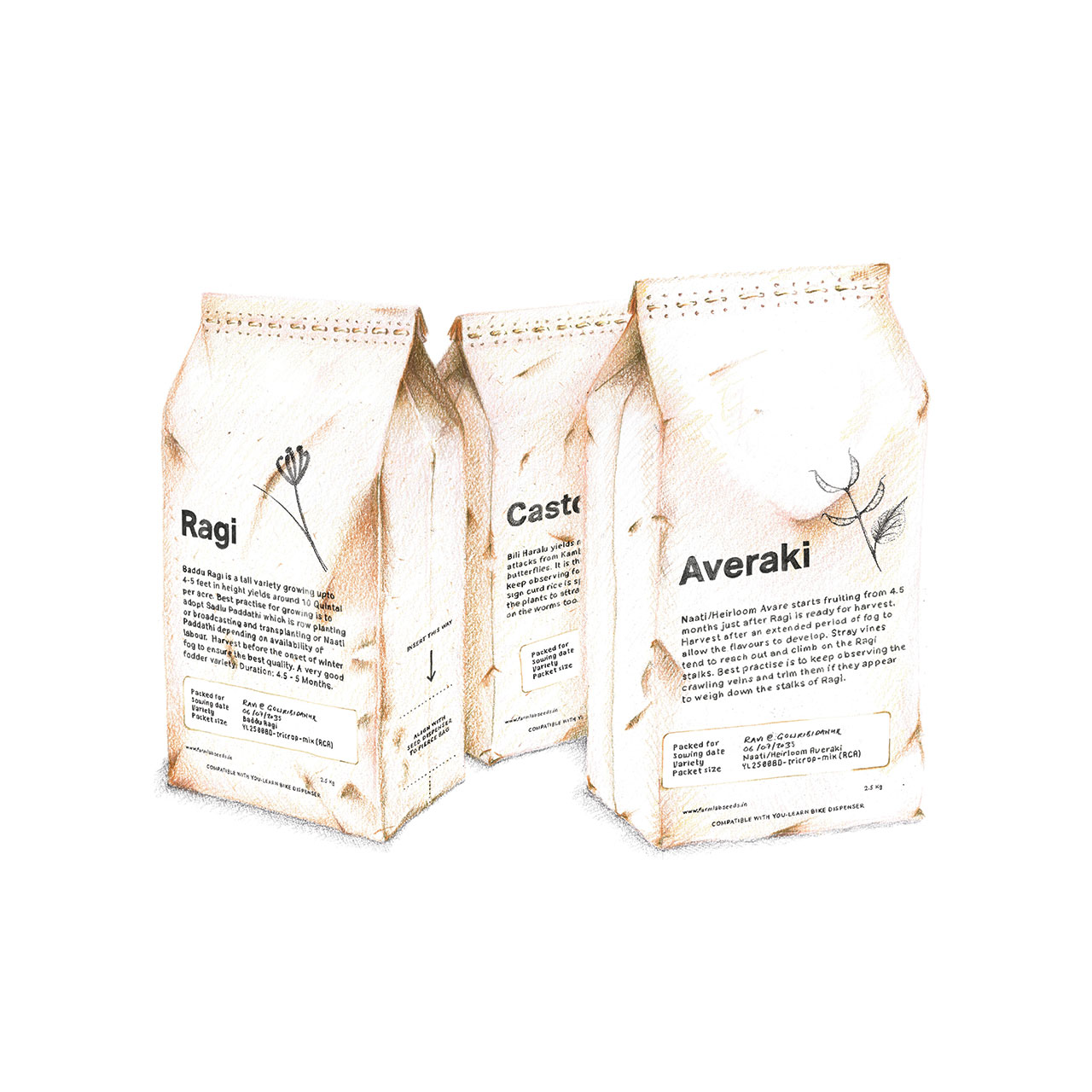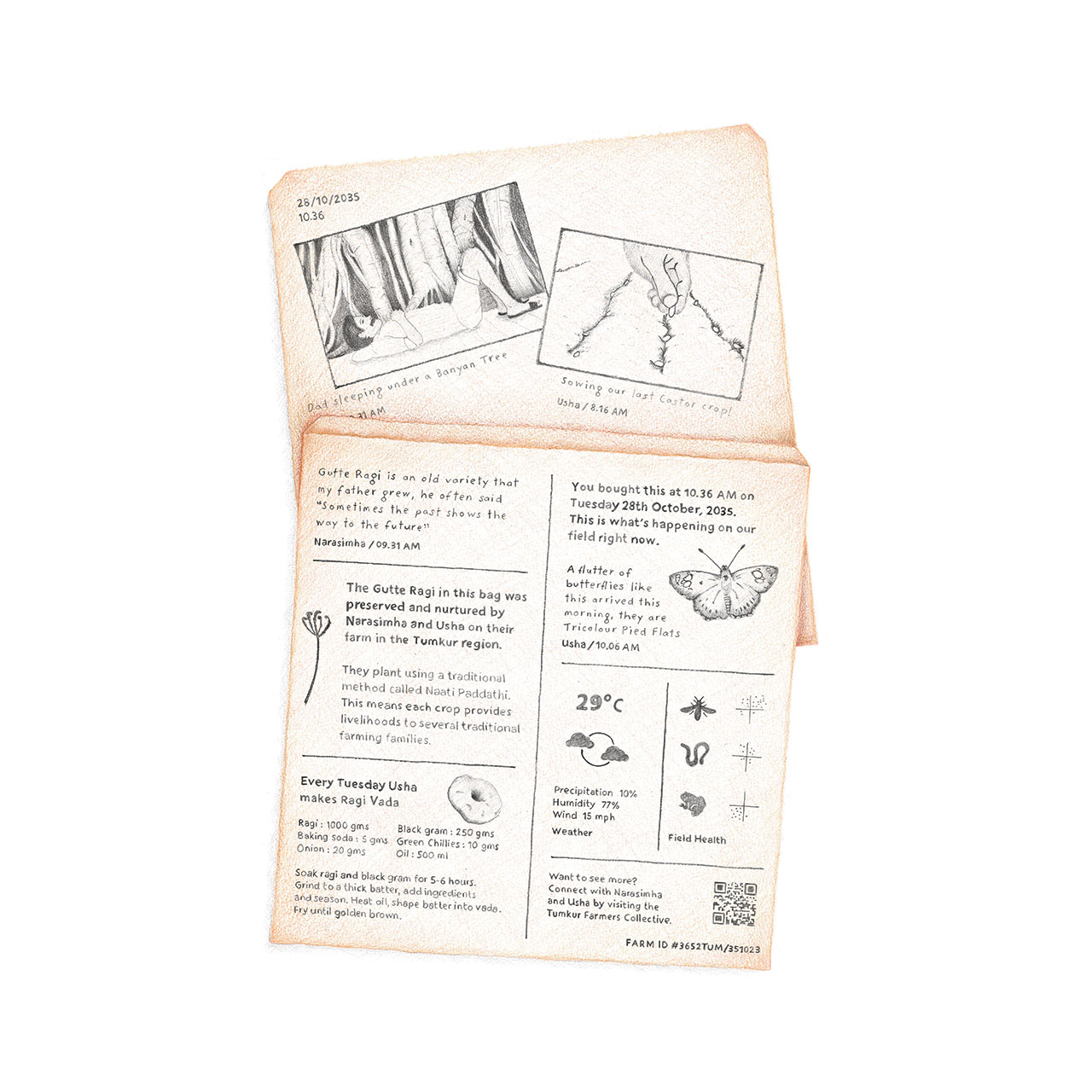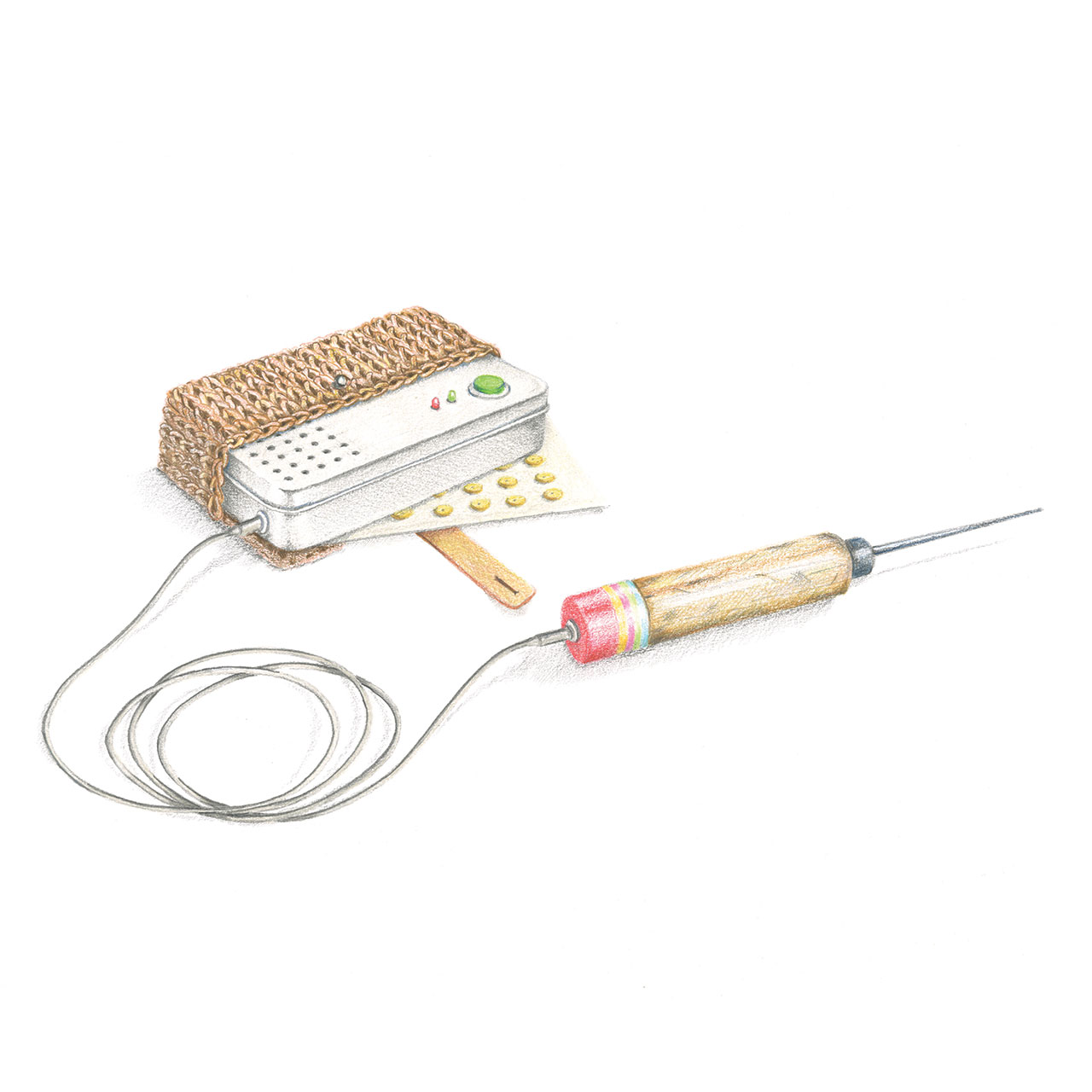Artefact 10
FarmLab Seeds
Decentralised technology supports the development and legitimisation of decentralised farming practices, like the use of local seed varieties rather than the standardised ones from Big Agro. Heritage seeds offer a great variety of cultivars that respond differently to the soil, the nutrients, and the weather. By growing a range of crops, farmers protect themselves against monocropping failures resulting from infection or extreme weather.
FarmLab supports small-scale farmers in the identification, cataloguing, storing, and distribution of heritage seeds. This network of decentralised AIs allows for the use of the farmers’ indigenous wisdom at scale. Combining long range weather prediction with hyper-localised data collected on soil, air and water quality, creates a robust data set for farmers to consider and plant the right seeds.
Farmers rely on indigenous knowledge, but can choose to complement this with suggestions from FarmLab to create unique companion crop planting combinations, specific not simply to each farmer’s farm but each separate field too. Each season, the farmer’s insights become part of the lab’s data, strengthening the network’s understanding of seeds, the surrounding environment, and local farming practice.
Usha has spent the last week helping her father plant in their fields, but today she gets to plant her seeds in her field. It wasn’t difficult to convince her dad to experiment; he’d already seen an increase in yields upon using some of the basic tools she’d made for him. Now she wants to run some experiments to see how companion-planting might work. She’s heard a few stories about FarmLab’s algorithms making a mess of people’s crops in the early years, but it has recently been getting good reviews and, in any case, she has tweaked its suggestions based on her own experience in this specific field. Today she has received three bike- bag-sized packets of averaki, castor and ragi seeds – each pack providing a ‘perfect-plant’ date. In a month or so, she’s going to get another set of seeds. Per the algorithm, this progression should ensure an ideal continued harvest, tailored to their crop-harvesting speed. Since this year is going to be wetter than usual, Usha adjusts the seed distributor to make its seed-distribution setting less dense. As she pushes the bike through the furrowed field, the You-Learn dispenser automatically switches between rows of the intercropped three seeds – two rows of each. Its hypnotic tickity-tak sounds like the keyboard on her grandmother’s retro laptop. Usha has added a modification to the dispenser so that it rings her bike bell at the end of each row. This allows her to turn in time and to keep to the shape of the field she uploaded to the dispenser. Next year, she has plans to fit new quad bike wheels and a battery to make the process even easier. But that’s next year – for now, the bell is ringing, reminding her that one of the seed packets needs changing.







